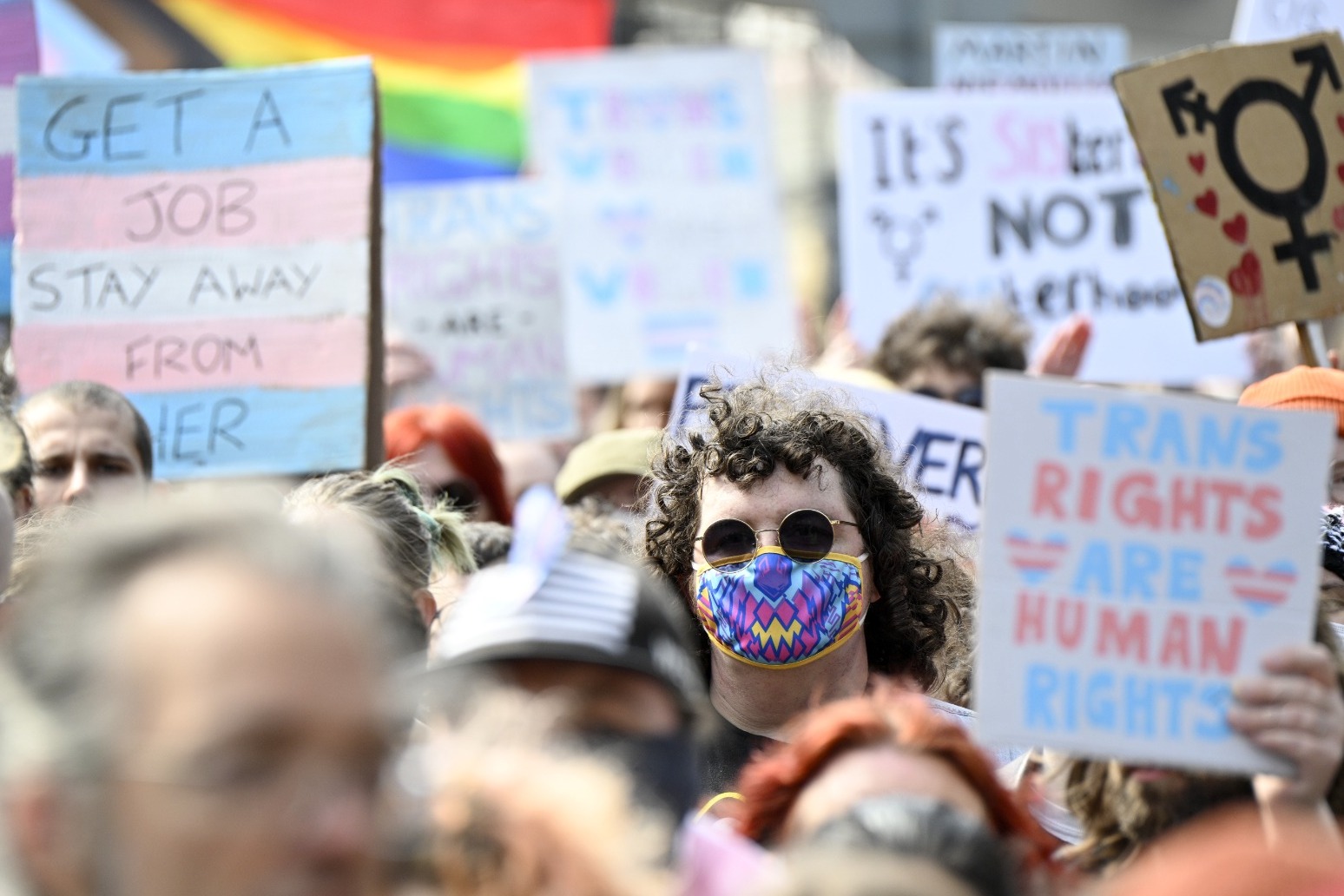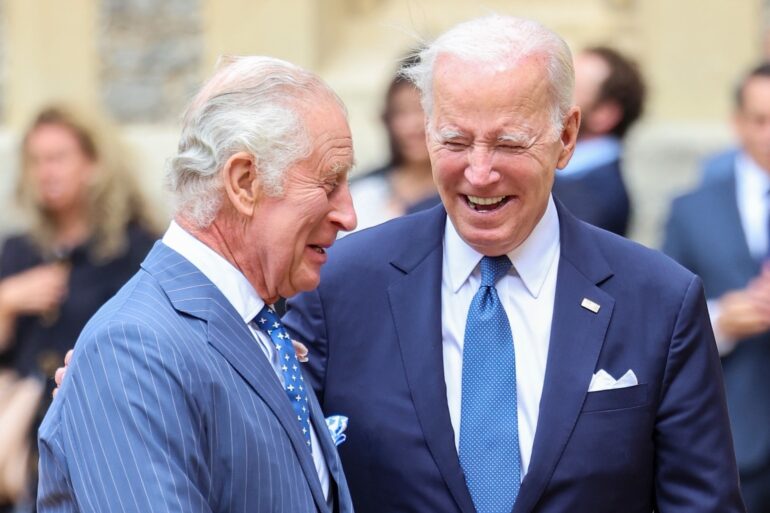-
 play_arrow
play_arrow
Chorley ONE Local Radio for Chorley
Survey suggests most people think Supreme Court gender ruling was right


A majority of people think the Supreme Court made the right decision in its recent ruling on biological sex and that the law on women’s rights is now clear, according to a survey commissioned by gender-critical campaigners.
Polling for the Sex Matters charity also suggested that almost three quarters of those asked felt the right decision had been made by some sporting bodies in banning transgender women from its female competitions.
The organisation commissioned YouGov to survey 2,106 adults online in Great Britain earlier this month, following the April ruling.
The Supreme Court said the words “woman” and “sex” in the Equality Act 2010 refer to a biological woman and biological sex, following a challenge against the Scottish Government by campaign group For Women Scotland (FWS).
Almost two thirds (63%) of those surveyed said they believed the Supreme Court had made the right decision, while just over half (52%) said the ruling has made the law around women’s rights and how they apply to transgender people clear.
While 13% said the ruling would have a positive impact on them and 6% said it would be negative, more than three quarters of people (77%) said the ruling would make no real difference to them.
Following the ruling, English and Scottish governing bodies banned transgender women from the competitive female football game, while they were also banned from competitive women’s and girl’s cricket in England and Wales.
The survey suggested 74% of those surveyed felt these were the right decisions, while 12% disagreed and 14% said they did not know.
On the question of toilets, around a fifth of people felt transgender men and women should use whichever facilities they prefer, while around two fifths said unisex toilets should be used.
Asked about which toilets transgender people should use, a fifth of those surveyed felt transgender women should use the men’s toilets, while 14% said they should use the women’s toilets.
Some 17% said transgender men should use the men’s toilets and the same proportion said they should use the women’s toilets.
In the wake of the Supreme Court ruling Cabinet Office minister Pat McFadden said the “logical consequence of the judgment” and new equalities watchdog guidance was that people will have to use toilets, changing rooms and other facilities of their biological sex.
But he added that there would not be “toilet police”.
The equalities watchdog, Equality and Human Rights Commission (EHRC), issued interim guidance, saying trans women “should not be permitted to use the women’s facilities” in workplaces or public-facing services like shops and hospitals, with the same applying for trans men using men’s toilets.
A more detailed code of practice is expected from the EHRC to be put forward for ministerial approval by June.
Campaign group the Good Law Project (GLP) last week announced it has taken the first step of a legal challenge against the watchdog, claiming the guidance is “wrong in law”.
Some trans rights groups have raised concerns about the practical implications of the Supreme Court ruling.
But Susan Smith, from FWS, said the Sex Matters survey results showed that “the more governments push gender identity ideology, the more failings are revealed which strengthens public opposition”.
She said: “For all the noise created by activists in recent weeks, this polling indicates that most people believe that women’s human rights matter and that the court acted correctly in determining that robust, clear definitions were critical to ensuring that lesbians, and gay men were not sacrificed or redefined in law.
“We are pleased that there is evidence of heightened awareness of the case in Scotland in particular, which bears out our belief that the more governments push gender identity ideology, the more failings are revealed which strengthens public opposition.”
Maya Forstater, chief executive of Sex Matters said the fact a majority in the survey said they believe the ruling had made the law around women’s rights and how they apply to transgender people clear means “there is no justification for leaders to kick the can down the road by claiming ‘confusion’ and the need to wait for further guidance before the law can be implemented”.
:: Figures in the survey were weighted to be representative of GB adults.
Published: by Radio NewsHubClick here to read this story in full at Radio News Hub
Written by: admin
Similar posts
Latest News
- Trump Russia Ukraine ceasefire talks to begin immediately
- King sends private message of support to Joe Biden after cancer diagnosis
- PM defends common sense EU deal as critics condemn surrender to Brussels
- Harry Kane savours the joy of silverware but says my career is still the same
- Gary Lineker to leave BBC after this weekends Match Of The Day
Top popular

Energy suppliers pay out 7m after overcharging 34000 customers

UKs National Wealth Fund seals 135bn loan to build North Sea power cables

Weight loss jabs could help cut alcohol consumption study suggests

Royal Mint to launch stylish coins celebrating 150 years of Liberty

Temperatures remain above 15C threshold after second hottest April on record
Copyright THe Mediasite - 2024








